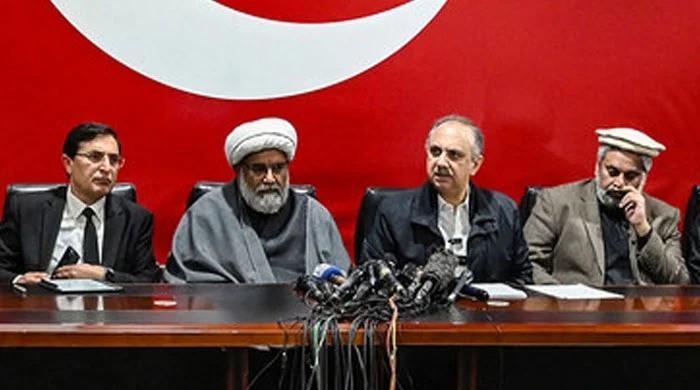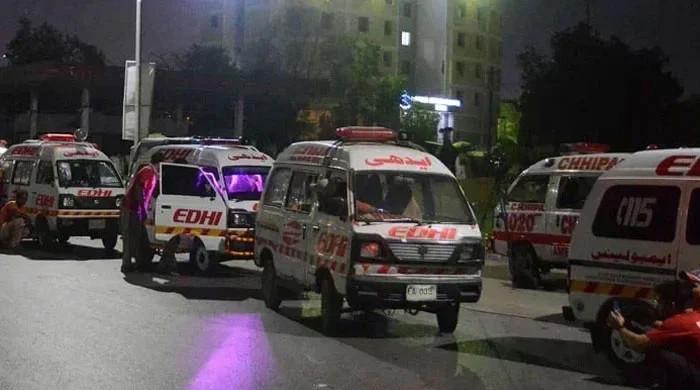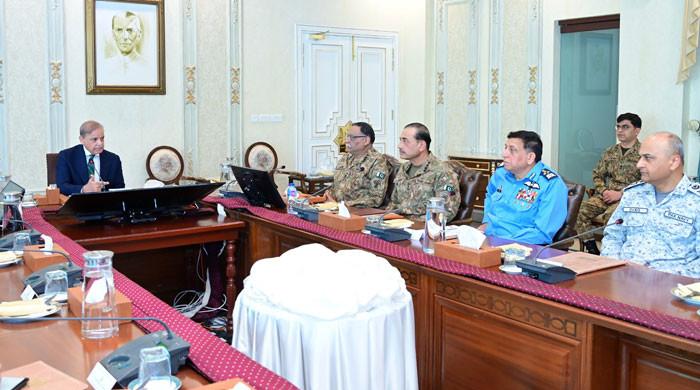Islamabad’s co-operation never been on expected lines: Dempsey
WASHINGTON: The US cannot achieve its goal of defeating al Qaeda without Pakistan's support, a top American General said, noting that Islamabad's co-operation on counterterrorism had not been on the...
July 20, 2013
"Our strategic interests and national security goals remain to disrupt, dismantle, and defeat al Qaeda and to prevent the return of safe havens in Afghanistan and Pakistan." "This will not be possible without Pakistan's support," General Martin Dempsey, chairman of the Joint Chiefs of Staff, said in written answers to the questions by the Senate Armed Services Committee.
"We also have an interest in a stable Pakistan and the non-proliferation of nuclear weapons and technology. On the security front, we have a more limited relationship than in the past, but I believe it is a pragmatic and constructive approach," said Dempsey, who has been re-nominated by US President Barack Obama for the same post.
"Pakistan's cooperation on counterterrorism has not always met our expectations. Since 2009, Pakistan has undertaken counterinsurgency operations against extremist organisation in the northwest, including Swat, North and South Waziristan, Mohmand, and Bajaur with mixed results," he said when asked about the cooperation being received by Pakistan on counterterrorism issues. "Security assistance, Coalition Support Fund reimbursements, and cross-border coordination with the ISAF and Afghan forces have helped enable these operations.
It is in our interest that Pakistan continues this campaign as effectively and comprehensively as possible," he said. Arguing for a continued close engagement with the Pakistani military, Dempsey said as Pakistan democratic consolidation progressed, the US must ensure that it maintains military-to-military ties. "I will continue a frank and respectful dialogue about our shared interests in countering extremist and promoting regional stability. Security cooperation cannot succeed without the buy-in of Pakistani leadership and continued support of the US Congress," he said.
Observing that military-to-military ties with Pakistan were an important aspect of the broader bilateral relationship, he said, "Our engagements, and especially our security assistance programmes, are essential for effective military cooperation between our two countries." Dempsey said he had engaged productively with Pakistan army chief General Ashfaq Pervaiz Kayani, many times in the past, and “the Office of the Defence Representative in Pakistan plays an important role in building and sustaining military-military ties at lower levels”. "These relationships allow us to engage Pakistan in clearly defined areas of shared concern such as maintaining regional stability, curbing violent extremism, and countering the threat of improvised explosive devices," he said.
Noting that the key route to sustain US forces in Pakistan has been movement via sealift to Pakistan and then ground movement through Pakistan to Afghanistan, he said this is the cheapest, fastest, most direct surface route. "Since the reopening, the Government of Pakistan has provided security to US and NATO cargo shipments through the PAK GLOC. Pakistan is maintaining security along the Ground Lines of Communication (GLOCs) through Pakistan to Afghanistan for the transshipment of equipment and supplies in support of United States military operations in Afghanistan and the retrograde of United States equipment out of Afghanistan," he said.











